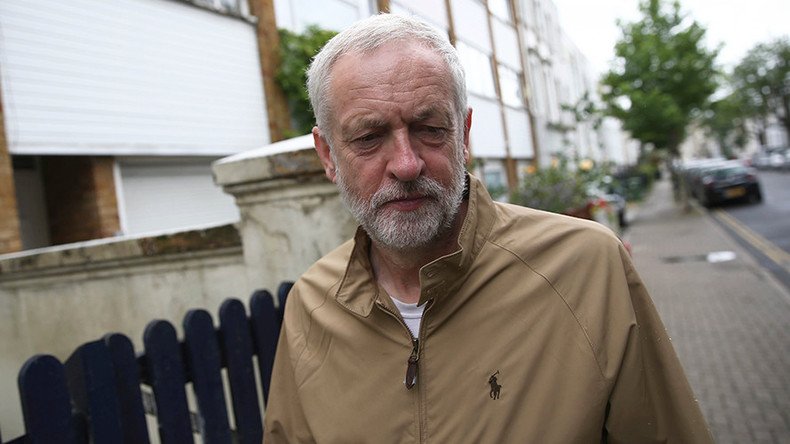BBC, other MSM guilty of ‘clear & consistent bias’ against Corbyn, study finds

British news channels are blatantly biased against Jeremy Corbyn, giving far more airtime to commentators who openly criticize the Labour Party leader than those who support him, a second study of the phenomenon shows.
New research by the Media Reform Coalition and Birkbeck University of London shows there has been a “clear and consistent bias” both online and on television against Corbyn since the coup against his leadership was launched after the EU referendum.
Similar conclusions were drawn earlier in July by a similar London School of Economics (LSE) study.
Another damning report on anti-Corbyn bias, this one from @mediareformUK and @BirkbeckNewshttps://t.co/wvPPsNYUXMpic.twitter.com/yl2DNAOaMZ
— SteveBirdNUJ (@SteveBirdFT) July 29, 2016
Birkbeck academics studied news reports published in the wake of the June 23 vote, when a series of shadow cabinet members resigned en masse in the hope of forcing Corbyn to stand down.
Outlets, including the BBC, were found to have given Corbyn opponents double the airtime afforded to Corbynistas.
The report found “a marked and persistent imbalance in favour of sources critical of Jeremy Corbyn, the issues that they sought to highlight, and the arguments they advanced.”
It also found a “strong tendency within the main BBC evening news bulletins for reporters to use pejorative language when describing Jeremy Corbyn and his supporters, including words like ‘hostile’ and ‘hard core.’”
Media critic Roy Greens said the findings should force reporters and editors to face “the reality of their bias.”
The BBC bias everyone has been talking about https://t.co/Zl5jWCgEB1pic.twitter.com/Bch4oljPE1
— Media Lens (@medialens) July 29, 2016
Compiled by Dr. Justin Schlosberg, the study compared news pieces about Corbyn’s leadership struggle as seen through the lens of the BBC, ITV, the Daily Mail, the Huffington Post, IBTimes, the Mirror, the Independent, the Guardian and the Telegraph.
And as far as opinion pieces were concerned both the Telegraph and the Daily Mail failed to publish any article supportive of the leader of the opposition.
The outlet most sympathetic with Corbyn was the Huffington Post, which divided its coverage between 50 percent pro-Corbyn comment and 50 percent critical or unclear.
“Amidst the social fracturing and polarisation of democratic life post-Brexit, the need for a more plural and inclusive mainstream news media has never been more urgent,” Schlosberg said.
“We hope that broadcasters and editors will respond positively to our call to consider the impact of imbalanced reporting on the democratic process.”
BBC has responded to that @mediareformUK research by describing the org as a 'vested interest group'. Ignore evidence, shoot the messenger.
— Tom Mills (@ta_mills) July 29, 2016
Earlier research by LSE echoed Schlosberg’s conclusions, finding that three quarters of newspaper reporting on Corbyn in his first months as leader either ignored or “distorted his views.”
“Allowing an important and legitimate political actor, i.e. the leader of the main opposition party, to develop their own narrative and have a voice in the public space is paramount in a democracy,” LSE’s Dr. Bart Cammaerts said.












